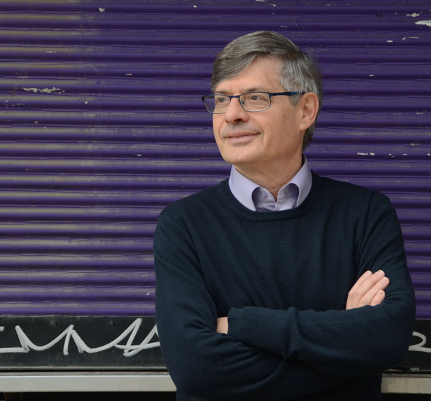Q&A: Katz Center Fellow Adam Ferziger Brings Up the Bones
Natalie Dohrmann (NBD): Adam, tell us a bit about your broad scholarly interests, what drew you to them, and what especially excites you about them personally and/or intellectually.
Natalie Dohrmann (NBD): Adam, tell us a bit about your broad scholarly interests, what drew you to them, and what especially excites you about them personally and/or intellectually.
JQR 114.4 is now available, online and in print.
In this issue:
In the months following the Russian invasion of Ukraine, the Katz Center joined with the Memorial Foundation for Jewish Culture and other research centers in an initiative to support colleagues in Ukraine—Jewish studies scholars, archivists, and others—who were seeking to continue their work under dangerous, unpredictable, and under-resourced conditions.
Since Russia invaded Ukraine in February 2022, the Katz Center and other institutions have been collaboratively figuring out how to support their Jewish studies colleagues in Ukraine. One form this support has taken is an initiative sponsoring mini-grants to Jewish studies scholars in Ukraine. Katz Center director Steven Weitzman reflects with other leaders of this initiative in this piece on a year of supporting scholars amidst war.
Steven Weitzman (SW): Elisabeth, thank you for contributing so much to our fellowship program this last semester. You came to the Katz Center to do research on something that you refer to as the “New York Black Book of 1946.” Can you tell us a bit about what this text is and what led you to investigate it?
In volume 111.2 of JQR, historian Zohar Segev wrote an article, “Rethinking the Dilemma of Bombing Auschwitz: Support, Opposition, and Reservation,” that relied on new archival documents to argue that World Jewish Congress official Leon Kubowitzki lobbied U.S. administration officials to consider a ground assault on the Auschwitz extermination camp.
One of the distinctive features of the Jewish Quarterly Review over the past seventeen years—from the time that the brilliant and dearly departed Elliott Horowitz and I became coeditors—has been our reliance on the mode of the forum to debate, revisit, and probe.
JQR 112.2 is now available, online* and in print.
In this issue:
As much of the world expresses sorrow and solidarity with the Ukrainian people—and admiration for its president, Volodymyr Zelensky—the ironies of history abound. To students of Jewish history, it is a source of near incredulity that the same recurrent site of mass violence against Jews—from the Khmielnitsky massacres of the mid-seventeenth century to the brutal killing fields during and after World War I to the bloodlands soiled by Nazi murderers in Operation Barbarossa in 1941—is home to a fledgling democracy and an unlikely and inspiring Jewish president.
 Raanan Rein: Rather than being a scholarly field in itself, Jewish Latin American studies should be viewed as a subfield of both Latin American studies and Jewish studies. For many years Jewish Latin American studies fell outside of the main parameters of the two abovementioned fields.
Raanan Rein: Rather than being a scholarly field in itself, Jewish Latin American studies should be viewed as a subfield of both Latin American studies and Jewish studies. For many years Jewish Latin American studies fell outside of the main parameters of the two abovementioned fields.